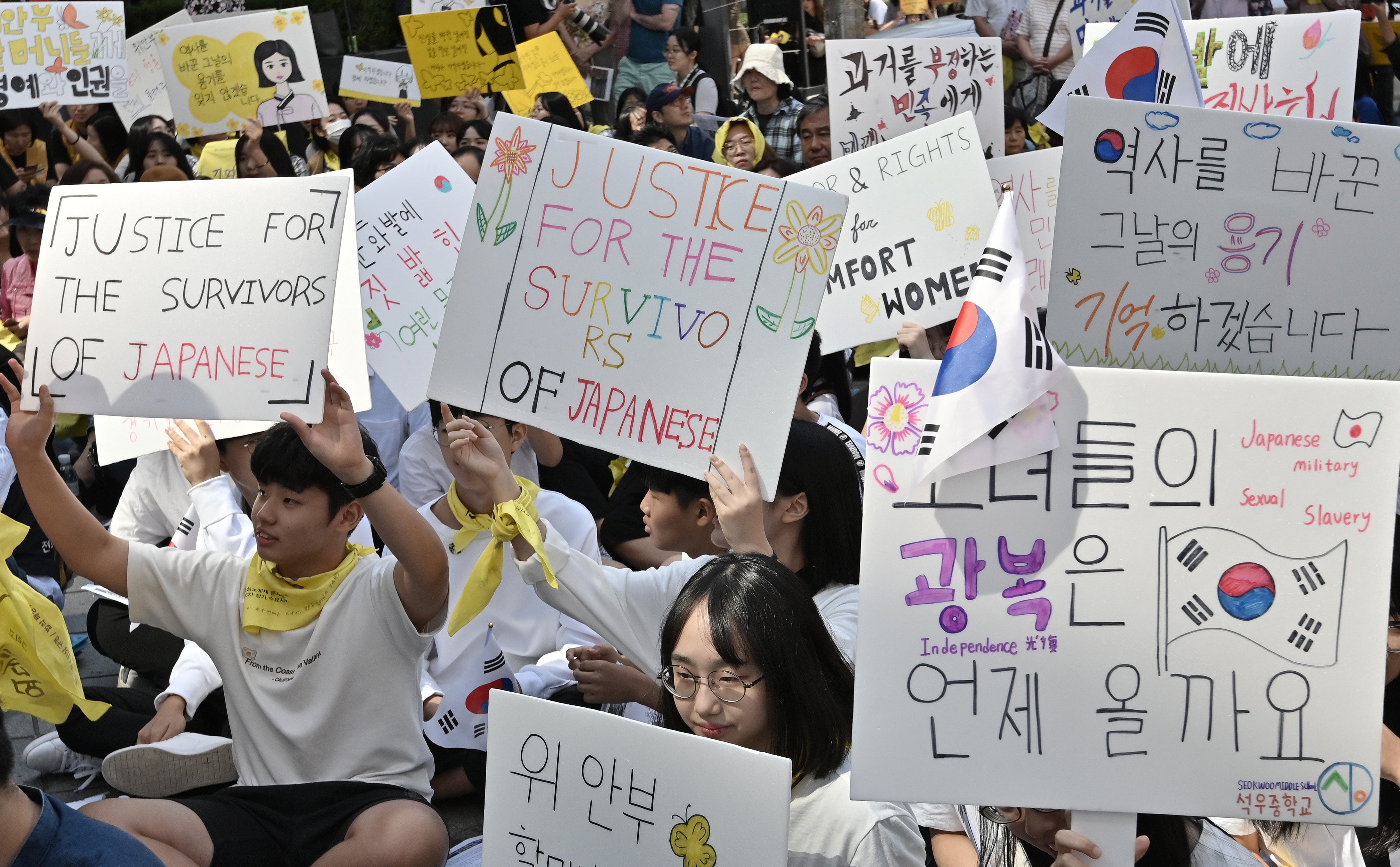South Korea court rules Japan should compensate WWII sex slaves
According to a conservative estimate, about 200,000 Korean girls and women were sent to Japanese front-line brothels during the colonial era, on the pretext of employment

In a landmark ruling, a South Korean court on Friday directed Japan to compensate 12 women with 100 million won (£67,420) each for wartime sex slavery.
“The court recognises that the accused committed illegal acts and that the plaintiffs suffered extreme psychological and physical pain hard to imagine,” Judge Kim Jeong-gon said in his decision.
“Evidence, relevant materials and testimonies show that the victims suffered from extreme, unimaginable mental and physical pain due to the illegal acts by the accused. But no compensation has been made for their suffering” the court said.
According to a conservative estimate, about 200,000 Korean girls and women were sent to front-line Japanese brothels during the colonial era, brought on the pretext of employment before being pushed into the sex trade. Known as "comfort women", they were used whenever the army invaded and occupied Asian countries from the early 1930s until the end of the war. About 240 women came forward and registered with the government as victims of sexual slavery. Only 16 of them, all in their 80s and 90s, are still alive.
Calling the mobilisation of these women into sexual slavery in Japanese brothels “a crime against humanity,” the court noted that since it happened when Japan “illegally occupied” the Korean Peninsula between 1910 and 1945, its sovereign immunity cannot be applied to protect the country from the lawsuits in South Korea.
The order from the Seoul District Court drew an immediate objection from Japan, as it maintains that the issue of wartime compensation was resolved under a 1965 treaty. The ruling is expected to strain diplomatic ties between Japan and its former colony.
The order, though largely symbolic, is likely to have a bearing on Washington’s efforts to build an amicable relationship between South Korea and Japan to counter the nuclear threats from North Korea and the growing influence of China in the region.
Japan refused to receive the legal documents, thereby delaying the proceedings of the case. Seven of the 12 litigants died while waiting for the ruling in the lawsuit that they initiated in 2016.
In 2015, the Park Geun-hye government had reached a settlement with Japan, under which the country issued an official apology to former comfort women and provided one billion yen (£ 7m) to a fund to support them. However, his successor, President Moon Jae-in nullified the agreement in December 2017 saying that the 2015 deal lacked legitimacy because officials failed to properly communicate with victims before reaching it.
Join our commenting forum
Join thought-provoking conversations, follow other Independent readers and see their replies
Comments
Bookmark popover
Removed from bookmarks